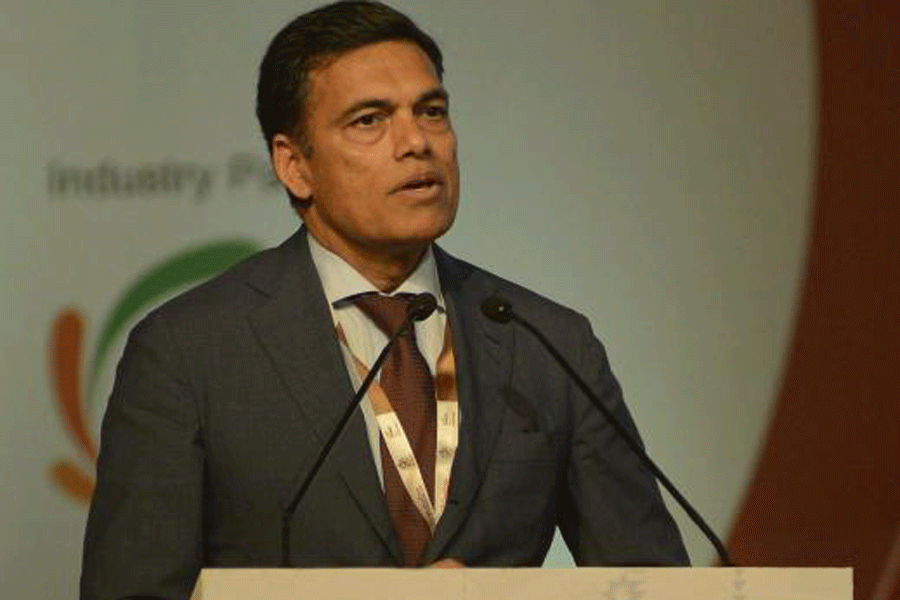JSW Steel, one of India’s top producers of the alloy, has set an aspirational target to power the company’s entire energy needs from renewable sources as part of its decarbonisation journey.
The company, which is aiming to reach a steel-making capacity of 50 million tonnes (MT) by the end of this decade, would possibly require 10 gigawatt (GW) of power to run operations at that scale. JSW is hoping to secure the total energy requirement from renewable sources.
Led by billionaire industrialist Sajjan Jindal, the company is already putting in place a road map to reach the lofty goal, even though Indian steel makers are increasingly pointing towards the need for government support for the energy transition.
Addressing the shareholders in the latest annual report of the company, Jindal said: “In line with our commitment to renewable energy adoption, we have already secured contracts for 1GW of capacity while successfully operationalising 225MW solar capacity at our Vijayanagar plant in April 2022, making it the first steel plant in India to embrace large-scale renewable energy deployment.”
He further informed that the company is on track to achieve an ambitious goal of reducing CO2 emissions intensity by 42 per cent (over the base year 2005) by 2030.
“As we aim to reach a capacity of 50 million metric tonnes, our aspiration is to power our entire setup through 10 GW of renewable capacity, making us possibly the world's first major steel manufacturer to achieve this milestone,” Jindal said. JSW’s domestic capacity stood at 27.7 MT by the end of FY23 and it is going to reach 37 MT by FY25.
Apart from sourcing electricity from renewable sources, it is simultaneously working on incorporating green hydrogen into the company’s direct reduced iron (DRI) plant at Vijaynagar, Jindal added.
Setting up 1 GW, equal to 1,000 MW, power plants from renewable sources could cost anywhere between Rs 4,500 crore and Rs 6,500 crore depending on solar or wind. Hydel power costs even more, according to a recent report published by Cholamandalam Securities.
While the annual report did not say how such massive investments would be funded, it is widely believed that JSW Energy, the power-generating company of the $22 billion JSW Group stable, will pick up the tab.
On May 23, JSW Energy unveiled a new strategy for 2023-30, pivoting the company from pure generation towards energy products and services.In addition to reaching 20 GW generation capacity by 2030, JSW Energy is going to enter energy storage, solar PV module manufacturing and production of green hydrogen as part of reorientation.
In the medium term, Cholamandalam Securities observed that JSW Energy’s capacity would go from 6.6 GW to 9.77 GW by the end of FY26 (growth of 50 per cent). The majority of this expansion (80 per cent) will be through renewables: wind, solar and hydropower projects. By FY26, around 61 per cent of its installed capacity will be of renewable sources of energy, the research report added.
While JSW Energy is going to find a captive buyer for the renewable power, questions remain on who would bear the cost of complete transition.Switching to renewable energy sources will not be enough to reach a carbon-neutral target. One of the challenges, both financial and technological, before the steel industry is to cut coal use.
Hydrogen, produced by green processes, could be an answer to it.
“In Europe, local governments are partly funding the transition. We have not seen many efforts here in India,” said a steel industry executive.










